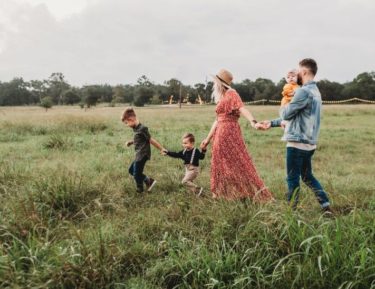You, like me, probably have watched or listened to the local or national news and in dismay thought to yourself, “What has happened to my community and the world? Has everyone gone crazy? It’s not safe to go out of my house! Why are people so angry and dangerous?” And, like me, you have probably turned the TV off because you were so frustrated with the depressing news. Why, you ask, is the whole world up-side-down?
Even in a town as small as Birmingham, Alabama, we can find depressing statistics like the following: (This data is based on a per-capita of 100,000 people; and can be found at: http://www.city-data.com/crime/crime-Birmingham-Alabama.html)
“The 2018 crime rate in Birmingham, AL was 876 (City-Data.com crime index), which was 3.2 times greater than the U.S. average. It was higher than in 99.3% of U.S. cities. The 2018 Birmingham crime rate rose by 4% compared to 2015. The number of homicides stood at 88 – an increase of 9 compared to 2015. In the last 5 years Birmingham has seen an increase in violent crime and a decrease in property crime.”
To understand what is happening to our communities we must examine the “excuses” given to us by the media, psychologists, medical experts, governments, and even some churches. It seems like no one wants to discuss the truth about what is wrong. All the various experts want to sweep it under the rug with explanations like he/she has childhood issues, mental issues, emotional issues, medical issues, environmental issues, or its their economic status, race, nationality, or sex.
I find it interesting that the dictionary gives the synonym of sin as crime. I also find it interesting that the dictionary also defines sin as an act regarded as a transgression, especially a willful, or deliberate violation of some religious or moral principle. This would imply that it is sin only if you are religious. In other words, the dictionary, which is the world’s interpretation for words, sees sin only relevant when you see the world through a religious lens.
Therefore, the world in general does not use the word sin. From a Christian worldview the answer to this dilemma is very simple: “We live in a sinful world. And, sinners do not believe that what they are doing is wrong. If you disagree with them, you are the problem! From a worldview perspective sin is not a valid word. As Christians we know that the answer to what is wrong with Birmingham, America, and the world can be defined with this one small word—sin. To understand how this word is the problem around the world we must examine the Bible. However, we must also understand that the Bible can be confusing at times. One puzzling verse for me has always been Psalm 51:4, when David says to the Lord, “Against you, you only, have I sinned and done what is evil in your sight.” (ESV)
That doesn’t make sense to me, because remember, David wrote this passage of Scripture after he was confronted by the prophet Nathan for taking Bathsheba to bed and murdering her husband, Uriah. So why does David only confess to God? Shouldn’t he confess his evil deeds to others? So, let’s clear something up, David isn’t ignorant of the consequences of his actions, nor is he minimizing what he’s done to Bathsheba, Uriah, the families involved, and the nation of Israel. Rather, he’s admitting that sin (against God) occurred first, which then paved the way for destructive sin (against others).
This is an important principle for us to remember, especially as we consider the topic of personal change. In other words, every act of human wickedness committed against another human being starts with the breaking of an intimate relationship with God. When we sin, we forget his presence; every sin seeks for his throne; every sin replaces the Creator with some created idol. David was able to take Bathsheba to bed because, in that moment, he didn’t care about the presence of God. David was able to order the murder of Uriah because, in that moment, he believed he was the ruler of all things. David was able to bring unspeakable pain to other families because, in that moment, his idol of pleasure was more important than the people to whom he was called to protect. But you might say, “I don’t sin like those people I read about in the media, and especially like King David from the Bible.” You must remember that God sees every sin as an unrighteous act toward Him.
Even sins like: unforgiveness, pride, evil thoughts, ingratitude, covetousness, selfish ambition, greed, deceitfulness, lust, heartlessness, arrogance, anger, faithlessness, senselessness, haughtiness, and spitefulness. Look at this list and tell me with a straight face that you don’t qualify as a sinner.
Because you and I are always breaking our relationship with God, we’re always creating a mess in the situations, locations, and relationships of everyday life. I don’t want that to be my legacy – I want to change. So, if this is true, and I believe it is, then we must all change; or a better word can be found in the Bible, and that is repent. As a biblical counselor, change and repentance are words that I focus on with almost every one of my counselees. Everyone, yes even you and me, need to change something about themselves. The Apostle Paul nailed it in Romans 10 when he said: “None is righteous, no, not one.”
If you want to see lasting change in your earthly situations, locations, and relationships, you must start by seeking change in your heavenly relationship.
Today, confess that you’re not always aware of God’s presence. Today, confess that you don’t joyfully submit to His lordship. Today, confess that you regularly pursue your idols more than your Savior. And after you have confessed, our Savior requires repentance; as He stated in Luke 5:32, “I have not come to call the righteous but sinners to repentance.”
During your confession and repentance, take heart because your sin is the result of a broken relationship, your hope for change is only found in a restored relationship. That’s why Jesus was crucified. It’s only through the gift of adoption into a restored relationship that we find that we need to experience a life transformation. To experience victory over sin, we need a greater love for Jesus than we have for ourselves, and His divine grace is the only thing that has the power to produce that kind of love in us. It will be a slow and arduous process, but God is patient with us even when we refuse to love Him, His faithfulness extends as far as the east is from the west.
Yes, it’s as simple as that. What is wrong with the communities across this whole vast land called earth is sin. There is no excuse, nor any term that can cover you if you are living in sin. The only thing that can cover you is the blood of our Savior, Jesus Christ.

